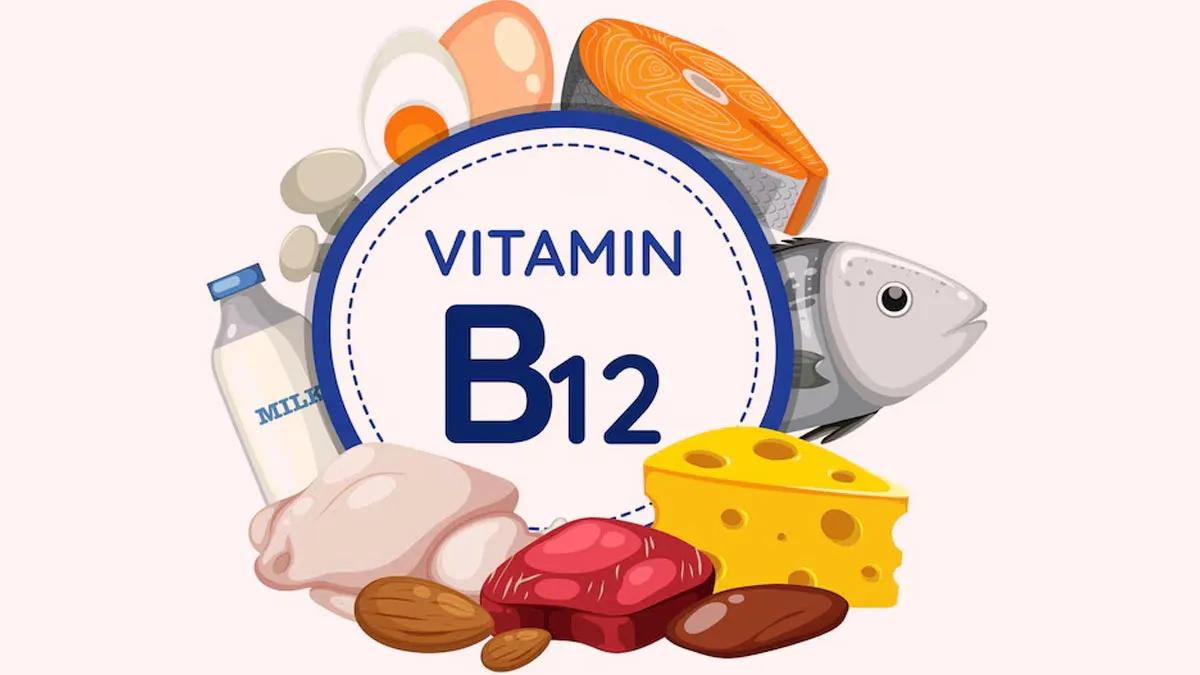
Is Vitamin B12 Deficiency Raising Your Heart Attack Risk?

Is Vitamin B12 Deficiency Raising Your Heart Attack Risk?
When we think of heart attack risks, lifestyle choices like smoking, lack of exercise, or high cholesterol usually come to mind. But an often-overlooked factor is nutritional deficiency, specifically, vitamin B12 deficiency.
At Midas Wellness Hub, we believe in looking at health holistically. Heart disease doesn’t develop overnight, it’s the result of a chain of imbalances, many of which start at the cellular and nutritional level. One of the silent culprits in cardiovascular health is low vitamin B12, which can directly influence your heart attack risk through its effect on a compound called homocysteine.
In this blog, we’ll take a deep dive into:
The role of vitamin B12 in the body
- How B12 deficiency links to heart attack risk
- Signs and symptoms of deficiency
- At-risk groups
- Functional medicine solutions to restore balance
Understanding Vitamin B12

Vitamin B12, also known as cobalamin, is an essential water-soluble vitamin. Unlike some vitamins that your body can produce in small amounts, B12 must be obtained from diet or supplementation.
It plays a crucial role in:
- Red blood cell production – Prevents anemia and ensures oxygen delivery to tissues.
- Nervous system function – Supports myelin sheath protection and neurotransmitter activity.
- DNA synthesis – Aids cell repair and renewal.
- Energy metabolism – Helps convert food into usable energy.
But perhaps one of its most overlooked functions is its role in cardiovascular health.
The Homocysteine Connection: Why B12 Matters for Your Heart
Your body naturally produces homocysteine when digesting protein. Under normal conditions, homocysteine is recycled into beneficial compounds with the help of B vitamins, especially B12, folate, and B6.
When vitamin B12 levels are too low, this recycling process slows down, leading to an excess of homocysteine in the blood, a condition called hyperhomocysteinemia.
Why is this dangerous?
Elevated homocysteine levels can:
- Damage the delicate inner lining of arteries (endothelial dysfunction)
- Promote oxidative stress and inflammation
- Increase blood clot formation (raising stroke and heart attack risk)
- Accelerate arterial plaque buildup (atherosclerosis)
In fact, several studies suggest that homocysteine is an independent risk factor for cardiovascular disease, alongside cholesterol and blood pressure.
At Midas Wellness Hub, we emphasize checking not just traditional heart risk markers but also nutritional and biochemical markers like B12 and homocysteine, because prevention starts much earlier than disease diagnosis.
Who Is at Risk for Vitamin B12 Deficiency?
Vitamin B12 deficiency is more common than many realize. Certain groups are especially vulnerable:
1. Vegetarians and Vegans
Since B12 is naturally found only in animal products (meat, fish, dairy, eggs), people on plant-based diets often struggle to get adequate amounts.
2. Older Adults
With age, stomach acid production decreases, impairing absorption of B12 from food.
3. People with Digestive Disorders
Conditions like gastritis, celiac disease, Crohn’s disease, or even frequent acid reflux medication use can reduce absorption.
4. Those on Long-Term Medications
- Metformin (commonly prescribed for diabetes)
- Proton pump inhibitors (PPIs) and antacids
- Both interfere with vitamin B12 absorption.
5. Individuals with Autoimmune Disorders
Conditions like pernicious anemia prevent the body from absorbing B12 properly.
Symptoms of Vitamin B12 Deficiency
B12 deficiency often develops slowly, making symptoms easy to miss. Some warning signs include:
- Fatigue, weakness, and low energy
- Tingling or numbness in hands and feet (nerve involvement)
- Pale or yellowish skin
- Mood swings, depression, or memory problems
- Shortness of breath and heart palpitations
- Poor concentration or “brain fog”
These symptoms may seem unrelated to heart health, but over time, untreated deficiency leads to elevated homocysteine, setting the stage for cardiac complications.
Can B12 Deficiency Really Increase Heart Attack Risk?
Yes, and here’s why.
- When homocysteine levels remain elevated:
- Arteries stiffen, raising blood pressure.
- Clots form more easily, raising the risk of sudden blockage in coronary arteries.
- Plaques develop faster, narrowing arteries and reducing blood flow to the heart.
According to research published in the Journal of the American Medical Association (JAMA), high homocysteine levels were strongly associated with increased risk of coronary artery disease.
Correcting vitamin B12 deficiency doesn’t guarantee heart attack prevention, but it removes a major hidden risk factor.
Functional Medicine Approach at Midas Wellness Hub

Traditional medicine often addresses heart attack risk by focusing solely on cholesterol, blood pressure, or lifestyle changes. While these are important, functional medicine takes a deeper view.
At Midas Wellness Hub, our approach includes:
1. Comprehensive Testing
- Vitamin B12 levels
- Homocysteine levels
- Folate and B6 status
- Inflammatory markers (CRP, hs-CRP)
- Cardiometabolic panel
2. Personalized Nutrition Plans
- Incorporating B12-rich foods (fish, eggs, poultry, dairy, fortified cereals)
- Plant-based supplementation for vegans/vegetarians
3. Targeted Supplementation
- Oral B12 (methylcobalamin or cyanocobalamin)
- Sublingual B12 for better absorption
- Injections for severe deficiency
4. Holistic Lifestyle Coaching
- Stress management (since stress depletes nutrients faster)
- Regular physical activity for circulation and heart health
- Mindful eating habits to ensure nutrient balance
5. Root Cause Healing
- Addressing gut health issues that impair absorption
- Reviewing medications that deplete B12
- Identifying genetic factors (like MTHFR mutations) that affect homocysteine metabolism
How Much Vitamin B12 Do You Really Need?
The recommended dietary allowance (RDA) for adults is around 2.4 mcg per day. However, actual needs may be higher depending on:
- Age
- Dietary habits
- Medical conditions
- Genetic factors
Functional medicine often emphasizes optimal ranges, not just “normal” lab values. For many individuals, keeping B12 levels in the upper range of normal supports better neurological and cardiovascular health.
Practical Steps to Protect Your Heart

If you’re concerned about your B12 status, here’s what you can do:
1. Get Tested – Ask for both serum B12 and homocysteine levels.
2. Boost Your Diet – Include natural B12 sources or fortified options.
3. Consider Supplementation – Especially if you’re vegan, vegetarian, or have absorption issues.
4. Check Medications – Review with your doctor whether long-term medications may be affecting absorption.
5. Adopt a Heart-Healthy Lifestyle – Pair B12 optimization with exercise, stress management, and anti-inflammatory nutrition.
Final Thoughts
Vitamin B12 deficiency is often seen as a minor issue, but in reality, it can silently increase your risk of heart disease and heart attacks. At Midas Wellness Hub, we see B12 as more than just a vitamin, it’s a key protective factor for your cardiovascular system.
By identifying deficiencies early, restoring balance with the right nutrition and supplementation, and addressing the root causes of imbalance, you can significantly reduce your risk of heart complications.
Your heart health is not just about avoiding disease, it’s about creating resilience, energy, and longevity. And sometimes, it all starts with something as simple as checking your vitamin levels.
At Midas Wellness Hub, we help you look beyond symptoms and focus on the deeper story your body is telling. If you’re ready to optimize your heart health, book your consultation today.
